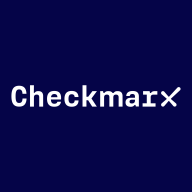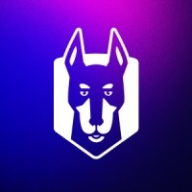

Snyk and Checkmarx compete in the security assessment space, with Snyk showing an edge in user-friendly integrations and ease of use, while Checkmarx is recognized for its comprehensive capability and robustness.
Features: Snyk is praised for seamless integrations with various platforms and IDEs, an accurate vulnerability database, and flexibility in open-source library checks. It also has self-service options and strong integrations with Slack for notifications. Checkmarx excels in comprehensive security scans and in-depth analyses of open-source security. Its configurability and rich visualization of vulnerabilities make it ideal for enterprise environments.
Room for Improvement: Snyk could benefit from incorporating SAST and DAST features, enhanced language support, and improved filtering of notifications. Enhancements in scanning speed, reporting, and Scala support are needed. Checkmarx requires improvements in dynamic analysis and a simpler pricing model. Faster updates and a more user-friendly interface would also be advantageous. Both need to tackle false positives better.
Ease of Deployment and Customer Service: Snyk offers smooth deployment across various cloud environments and is noted for strong customer support, with an emphasis on developer-centric resources. The documentation supports easy deployment. Checkmarx offers diverse methods but can be complex to set up, needing improvements in API security. Their support is responsive but perceived as less comprehensive than Snyk's.
Pricing and ROI: Snyk is known for straightforward packaging and robust licensing, scaling well with customer needs despite being considered expensive. Users report significant ROI through effective vulnerability management. Checkmarx's pricing is viewed as more complex and costly but offset by its extensive security capabilities making it valuable for enterprises needing thorough coverage.
| Product | Market Share (%) |
|---|---|
| Snyk | 13.2% |
| Checkmarx Software Composition Analysis | 2.5% |
| Other | 84.3% |


| Company Size | Count |
|---|---|
| Small Business | 7 |
| Large Enterprise | 8 |
| Company Size | Count |
|---|---|
| Small Business | 20 |
| Midsize Enterprise | 9 |
| Large Enterprise | 21 |
Checkmarx Software Composition Analysis (SCA) helps organizations manage the risks associated with open source and third-party components in their software applications. While leveraging open source libraries and third-party dependencies is common practice, it can also introduce security vulnerabilities and license risks.
Checkmarx SCA offers a multifaceted approach to managing these risks by:
Automatically scanning project repositories, build configurations, and manifests to create a comprehensive inventory of all components, including version information and associated licenses.
Performing vulnerability assessments on each component, including identifying and prioritizing actual exploitable or reachable vulnerabilities.
Protecting organizations from software supply chain attacks involving malicious packages, such as the XZ Utils backdoor.
Identifying licenses associated and providing insights into license obligations, restrictions, and potential conflicts.
Integrating seamlessly into existing development workflows and CI/CD pipelines.
Providing actionable remediation guidance to help organizations address identified vulnerabilities and compliance issues effectively.
Snyk excels in integrating security within the development lifecycle, providing teams with an AI Trust Platform that combines speed with security efficiency, ensuring robust AI application development.
Snyk empowers developers with AI-ready engines offering broad coverage, accuracy, and speed essential for modern development. With AI-powered visibility and security, Snyk allows proactive threat prevention and swift threat remediation. The platform supports shifts toward LLM engineering and AI code analysis, enhancing security and development productivity. Snyk collaborates with GenAI coding assistants for improved productivity and AI application threat management. Platform extensibility supports evolving standards with API access and native integrations, ensuring comprehensive and seamless security embedding in development tools.
What are Snyk's standout features?Industries leverage Snyk for security in CI/CD pipelines by automating checks for dependency vulnerabilities and managing open-source licenses. Its Docker and Kubernetes scanning capabilities enhance container security, supporting a proactive security approach. Integrations with platforms like GitHub and Azure DevOps optimize implementation across diverse software environments.
We monitor all Software Composition Analysis (SCA) reviews to prevent fraudulent reviews and keep review quality high. We do not post reviews by company employees or direct competitors. We validate each review for authenticity via cross-reference with LinkedIn, and personal follow-up with the reviewer when necessary.